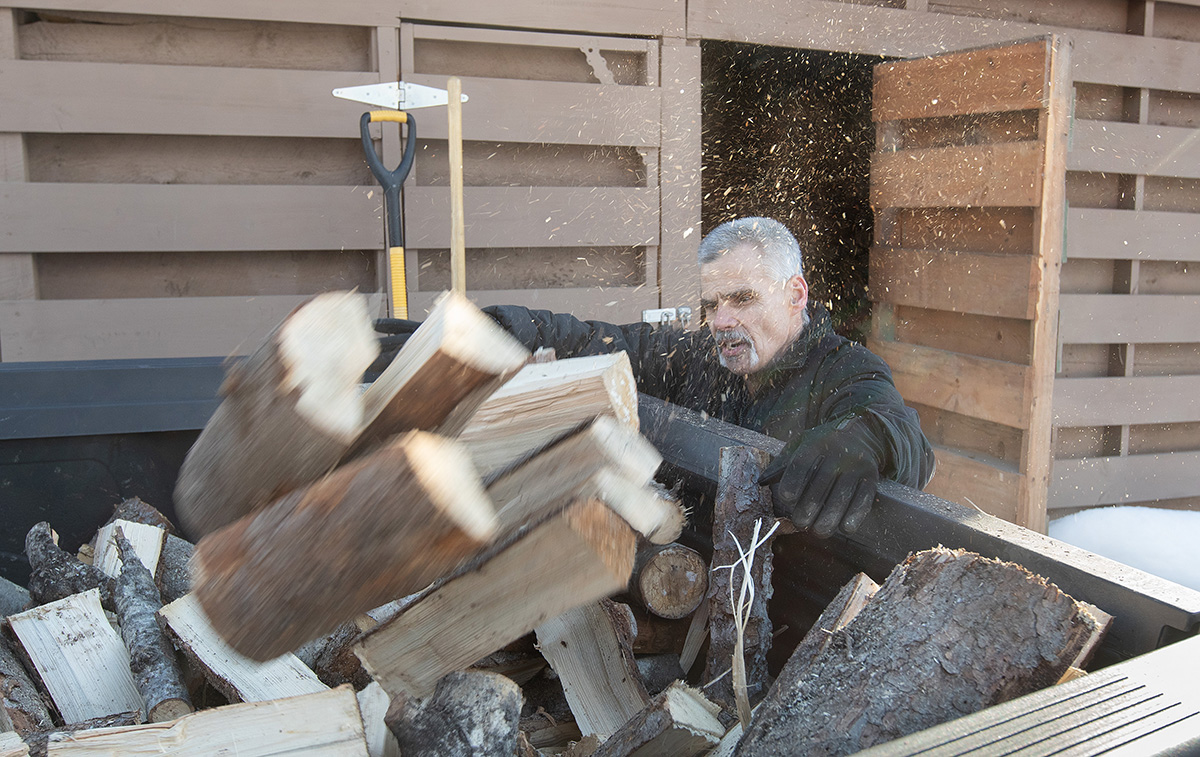Key points:
- In a small, rural Alaska town, Willow United Methodist Church runs a community food pantry that is a lifeline for many living off the grid.
- The ministry has grown from helping 35 families to serving 170-200 families each month.
- Food pantry recipients also volunteer alongside members from Willow and other area churches, creating a sense of community and togetherness.
Jimmie Hutson said that his wood stove burns the whole winter and must be fed every few hours. Living on a fixed income, he said it’s a blessing to be able to rely on free firewood courtesy of the Willow Community Food Pantry, a ministry of Willow United Methodist Church.
“They take care of me. The truckload I picked up today should get me through the winter,” he said.
Hutson is not just a recipient of the ministry, he also volunteers there, stocking pantry shelves and delivering firewood to others. After recovering from esophageal cancer, he said he spent a few years sitting at home and got bored.
“I came here and asked if they needed help, and I’ve been here four or five years,” he said.
“Because of the food bank, I know everyone in the community. A lot of people around here really depend on the food bank; it’s quite a blessing.”
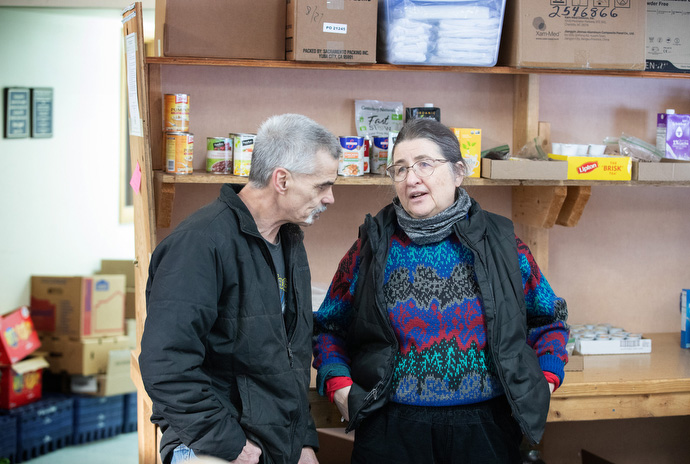
The food pantry began in 2005 out of a space the church had been using to store donated clothing. Pantry director Ola Williams, then chair of the church outreach team, said they realized there was more need in the area for food than clothes.
“The first year, we supported 35 families a month. Now we’re up to 170-200 families a month and we’ve helped a total of 745 individuals already this year,” she said.
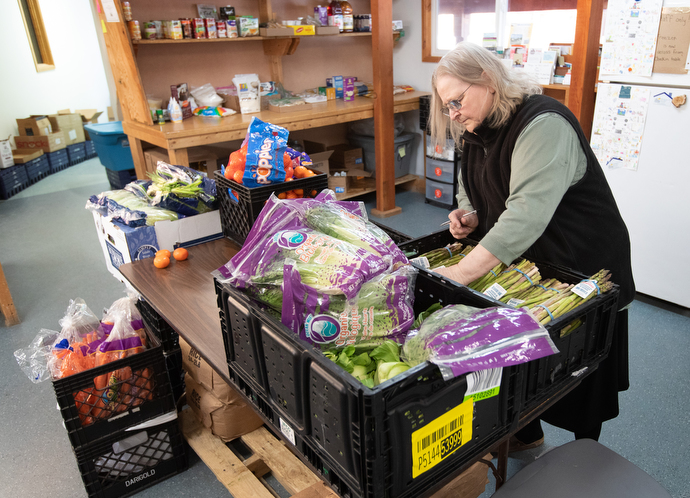
In addition, every Friday the pantry distributes bags to 60 students with two breakfasts, two lunches and snacks to get them through the weekend. The pantry also provides small vouchers for gas as well as the firewood.
“The population of Willow is only 2,000, so you can see what a percentage they serve,” said the Rev. Christina DowlingSoka, co-pastor of Willow United Methodist Church and superintendent of the Alaska Conference.
How to help
Both the church and food pantry are special projects of The Advance, the designated-giving program that is part of the United Methodist Board of Global Ministries. Those wanting to support the ministries can donate to Willow Community Food Pantry (Advance No. 931520) or Willow United Methodist Church (Advance No. 931511).
DowlingSoka said that the ministry serves a community “on the edge.” The nearest United Methodist church to the south is 30 miles away, and 300 miles to the north. Willow has higher unemployment than the national average, the cost of living is 13% above the national average and the cost of food is 31% above the national average.
“Some people we serve are living in buses or little trailers off grid, with no heat or running water. So, when winter goes long, it’s a matter of survival,” she said.
Williams said it’s taken a long time to build relationships, as many of those living off the grid tend to be mistrustful of others.
Fortunately, she said, “everybody knows the UMC is there to help. We have people who have nothing, but they’ll call and tell us they need propane for their heater or whatever.”
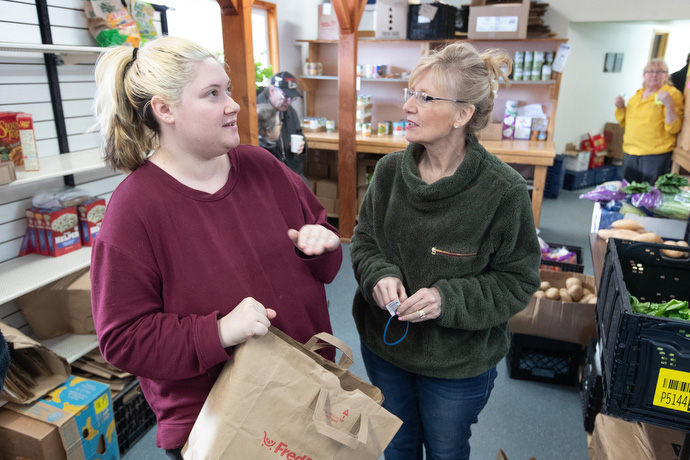
The food pantry has a number of partnerships with other community entities that provide necessary resources like food or transportation.
Sunshine Transit is a community organization providing low-cost transportation. As a partner, they provide free rides to the food pantry and also pick up and deliver food for those unable to get to the pantry.
“People often don’t have transportation when they’re off grid, so they come to us and we can take them to get water or showers or other needs,” said Ron Brooks, a driver with Sunshine Transit.
DowlingSoka said the ministry is called the Willow Community Food Pantry rather than Willow United Methodist Food Pantry because it’s a true community endeavor. Volunteers from other churches and those who aren’t churchgoers work side by side with Willow members. People who receive services from the pantry volunteer there as well.
“There’s this sense of mutuality that we’re working side by side. It’s one of those places you really see shalom in the community being lived out,” she said.
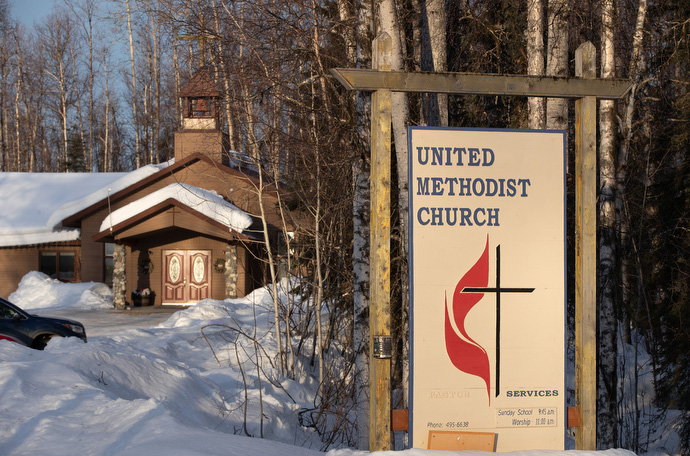
Judy Hannaman became a volunteer after initially coming to the pantry for help.
“I was almost out of food. They rescued me and put me on my feet and I’ve been here ever since,” she said.
Hannaman said she’s seen the ministry grow as community need grows. When she first started volunteering, they only needed her one day a month. Now, she estimates, the volunteer work has doubled or even tripled.
“This pantry, if it weren’t for them a lot of people wouldn’t get through the month,” she said. “There’s a lot of poverty here and we serve a big purpose.”
Hannaman also is a member at Willow United Methodist and brings her grandsons with her. She said the camaraderie among volunteers is her favorite part of the ministry.
“This is the greatest job I’ve ever had. We’re a close family,” she said. “I joke with Ola that I’m gonna die on my job, but she said I can’t because it’s too much paperwork.”
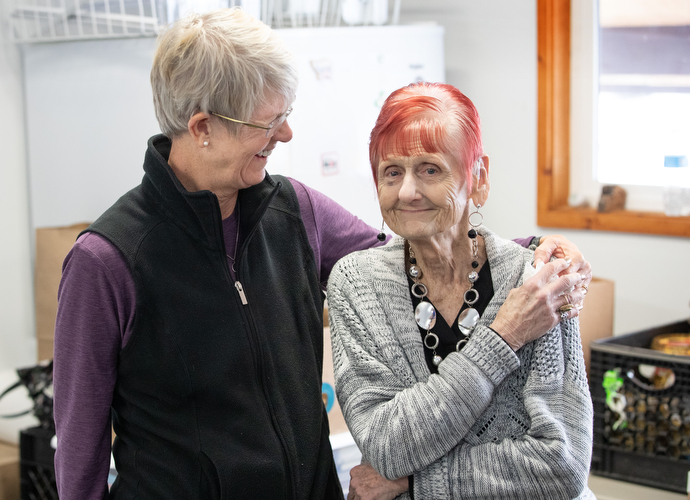
Though the church only has about 54 members, the growth of the pantry program led them to construct an addition to the building. That addition was vital when COVID-19 began to spread.
Williams said that in the course of a week, they had to completely reimagine the distribution process, from letting people come in to select their own groceries to pre-packing individual bags and distributing them in the parking lot — even in temperatures as low as 20-below-zero. They didn’t return to indoor distribution until last November.
DowlingSoka, who came to Alaska from serving in Tennessee, described her new home as an “area of extremes,” be it extreme need or extreme cold. This reality requires that an otherwise routine ministry like the food pantry be approached in a different way.
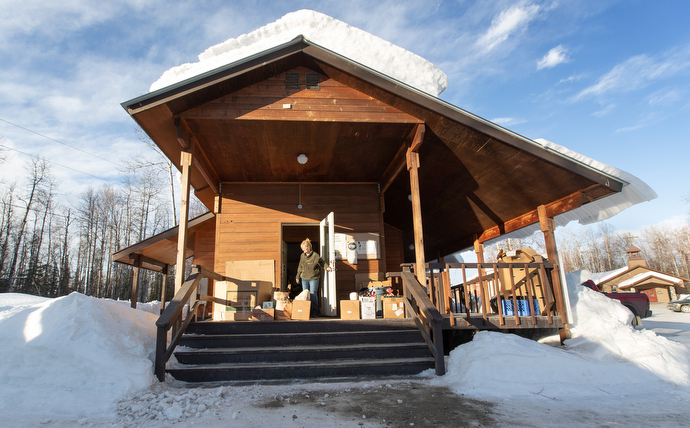
Bishop Cedrick Bridgeforth, who oversees the Greater Northwest Episcopal Area, said ministries here must be contextual and “there’s no cookie-cutter thing that anybody should ever bring to Alaska.”
Bridgeforth said ministries like Willow’s food pantry that serve remote areas become the lifeblood of those communities.
“You have to view your ministry very differently when you hold that space,” he said. “The viability of the ministry can’t rest on the number of people who show up for worship. It really has to rest on the impact that the congregation is having within its context.”
Butler is a multimedia producer/editor for United Methodist News. Contact him at (615) 742-5470 or newsdesk@umcom.org. DuBose is a freelance photographer in Nashville, Tennessee. To read more United Methodist news, subscribe to the free Daily or Weekly Digests.

